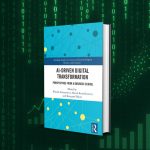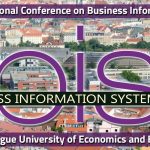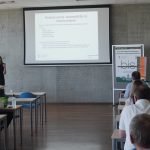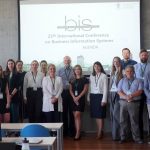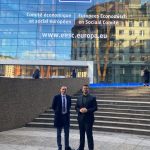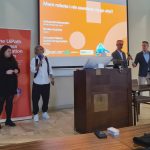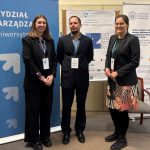
On November 26–28, 2025, the 11th edition of the Scientific Conference on Business Informatics “IwZ 2025” was held at the Faculty of Management of the University of Łódź. The main theme of this year’s edition, “Digital Transformation – (R)evolution in Management”, reflected current research trends in the field of business informatics. Three representatives of the Department of Information Systems participated in the conference: Dr. Elżbieta Lewańska, Dr. Piotr Stolarski, and … Read More
